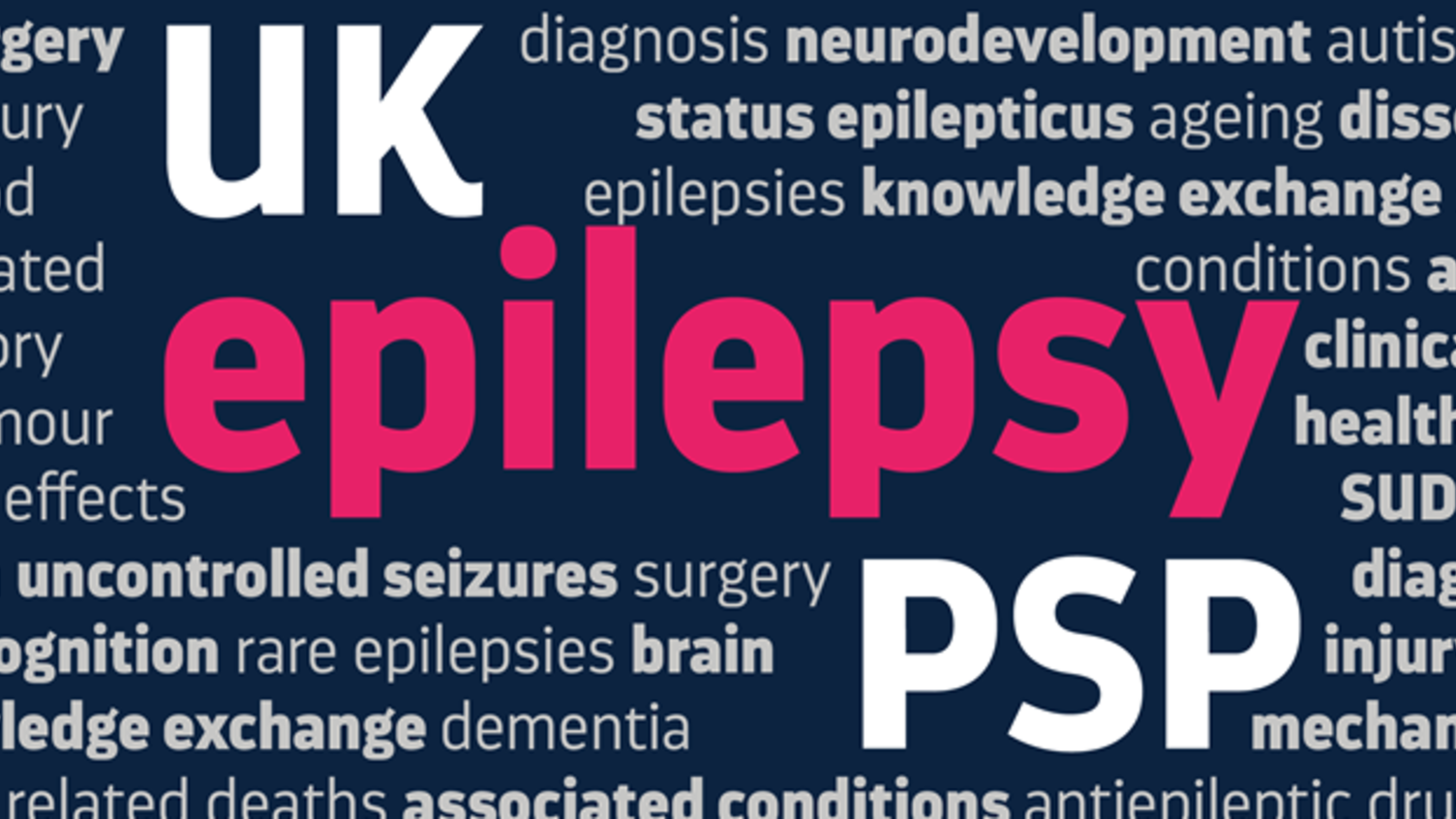Epilepsy

About this Priority Setting Partnership
What is epilepsy?
Epilepsy is one of the most common neurological conditions in the world. It can affect anyone of any age, gender, race or ethnicity. It is characterised by seizures which are caused by excessive electrical activity in the brain, the effects and impact of which vary depending on which part of the brain is affected. There are 600,000 people in the UK with a known diagnosis of epilepsy. Shockingly, there are 21 epilepsy-related deaths every week.
What was the UK Epilepsy PSP?
The UK Epilepsy Priority Setting Partnership (PSP) was a national survey collating the views of the entire epilepsy community – healthcare professionals, epilepsy charities, people living with epilepsy, their families, friends and carers, and those bereaved by epilepsy. The information gathered helped to identify and prioritise areas of healthcare that can be improved by research and result in higher quality studies and increased investment in research into epilepsy.
The scope of the UK Epilepsy PSP was as follows:
- Causes: to include prevention and co-morbidities
- Diagnosis: to include access to health services
- Treatments: to include anti-epileptic drugs, surgery, treatment side effects, co-morbidities (including those as a consequence of treatment), and epilepsy that does not respond to treatment
- Clinical management of epilepsy: to include risk of epilepsy-related deaths (including Sudden Unexpected Death in Epilepsy – SUDEP), service access, neurodevelopment, co-morbidities, social and psychological factors, and emerging areas such as epilepsy in older people
- Dissemination of research breakthroughs to influence epilepsy care, practice and policy: to include medical education and pathways to improved care
The Epilepsy Research Institute (formerly Epilepsy Research UK) committed the funds and resources to undertake the programme and brought together a steering committee that included clinicians from across the UK, key epilepsy charities and people with a personal connection to epilepsy.
See news: March 2023, February 2023, January 2023
The Epilepsy UK PSP Top 10 was published in October 2022.
Top 10 priorities
- What are the causes and contributing factors of epilepsy-related deaths, including Sudden Unexpected Death in Epilepsy (SUDEP), and how can these deaths be prevented?
- What underlying mechanisms cause epilepsy in children and in adults?
- What impact do epilepsy, seizures and anti-seizure medication (ASMs) have on brain health - including cognition, memory, learning, behaviour and mental health?
- How does epilepsy and epilepsy treatment impact neurodevelopment, and can this be managed or prevented?
- How can targeted, personalised medicine, such as gene therapy, be used to treat and/or prevent epilepsy?
- How can tools, devices and biological markers be used to accurately predict and prevent seizures and the onset of epilepsy?
- How do hormonal changes in women throughout the lifespan (e.g. puberty, pregnancy, menopause) impact epilepsy, and how can this impact be addressed?
- How can quality of life be improved for people with epilepsy, their families and carers, including those bereaved by epilepsy?
- What causes drug-resistant (refractory) epilepsy, and how can it be best treated?
- How can big data analysis, through artificial intelligence (AI) and machine learning, aid the diagnosis and management of epilepsy?
The following questions were also discussed and put in order of priority at the workshop:
- How can existing anti-seizure medicines (ASMs) or emerging therapies (e.g. cannabinoid-based therapies, m-TOR inhibitors, etc.) be improved (e.g. to be more effective or have fewer side effects), and how can new ASMs be developed?
- What is the relationship between sleep, epilepsy and nocturnal seizures?
- How can we advance epilepsy surgery to improve outcomes?
- How can collaboration within health care sectors (e.g. general practice, epilepsy specialist care, psychiatry, pregnancy/maternity care) be improved to advance the management of epilepsy?
- How can people with epilepsy achieve long-term seizure control, including minimising the risk of breakthrough seizures in people with well-controlled epilepsy?
- What are the genetic causes/markers of epilepsy, and how can genetic screening be used to diagnose or predict the onset of epilepsy? Could this testing be used prior to the first seizure?
- How could national epilepsy patient registries be used to optimise management, treatments and future research into epilepsy?
- What are the causes and contributing factors that trigger seizures in people with epilepsy, and how do these differ among the epilepsies?
- How can non-drug lifestyle factors (such as physical activity, weight management and dietary changes) help people manage their epilepsy?
- What is the relationship between ageing and epilepsy, and conditions frequently associated with ageing such as dementia?
- What are the best forms of psychological interventions for children and young people with epilepsy?
- What impact does a lack of understanding about epilepsy within the health service have on people with epilepsy?
- What is the relationship between diet, gut health and epilepsy, and can this relationship be used to improve epilepsy management?
- What causes absence seizures, and how can they be prevented?
- How does stress cause epilepsy and/or seizures? How can this be best managed?
Document downloads
For full details of all of the questions identified by this PSP, please see the document below.
Key documents
These documents set out the aims, objectives and commitments of the PSP
UK Epilepsy PSP Steering Group terms of reference
UK Epilepsy PSP engagement summary
UK Epilepsy PSP question verification form
Epilepsy Research UK September 2022 newsletter announcing the Top 10